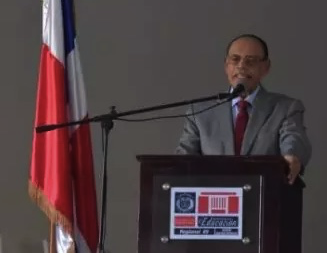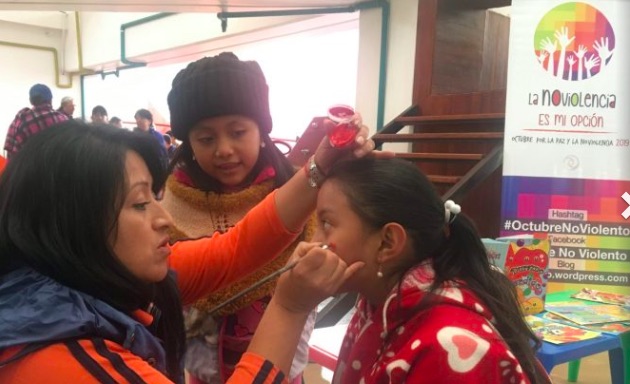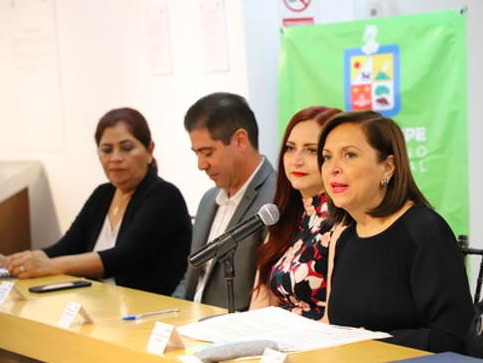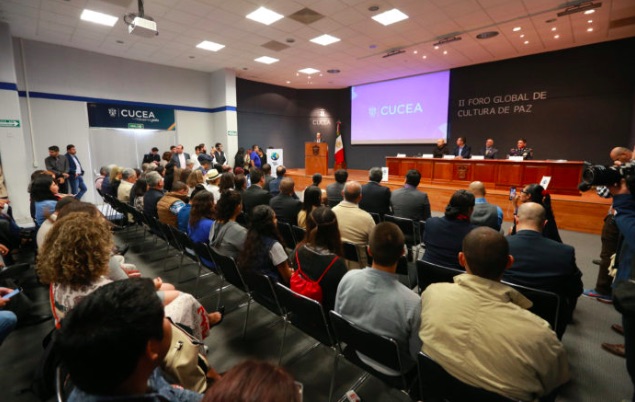. . SUSTAINABLE DEVELOPMENT . .
An article by Chloé Farand from Climate Change News
The Catholic church in the Amazon has denounced attacks on the environment and the life of indigenous people — setting out on a collision course with Brazil’s president Jair Bolsonaro.
Catholic bishops from the Amazon region committed to a more active role in the world’s most important forest following three weeks of discussions at the first Amazon synod in Rome.

Pope Francis with indigenous representatives in Rome for the first Amazon synod. (Photo: Amazon Synod of Bishops)
In a statement concluding the synod on Saturday, they called on countries to stop considering the forest as “an inexhaustible pantry” and to end large scale extractive activities such as mining and forest extraction, large infrastructure projects and the promotion of monoculture and extensive livestock farming.
Bishops agreed that “one of the main causes of destruction in the Amazon is predatory extractivism that responds to the logic of greed,” which they said had been “at the root of conflicts” in the region.
“In this way,” the statement said, “the church undertakes to be an ally of the Amazonian people to denounce the attacks on the life of the indigenous communities, the projects that affect the environment, the lack of demarcation of their territories, as well as the economic model of predatory and ecocidal development.”
The synod, which was called by Pope Francis in 2017, was the result of a two-year consultation process by the Catholic church across the Amazon basin, asking more than 80,000 people how the church should engage in the region.
Bishops agreed the need for an alternative development plan for the Amazon, focused on indigenous rights and environmental protection – in stark opposition to Brazilian president Bolsonaro’s own plan for the forest.
The Amazon basin is located across nine countries but about 60% of the forest cover is contained within Brazil’s borders, the country with the largest Catholic population in the world.
Bolsonaro was elected on a campaign pledge to open-up the Amazon for mining and developments. Although land disputes across the Amazon are not new, his rhetoric against indigenous people has emboldened land-grabbers, loggers and miners to encroach indigenous territories, leading to violence and murders.
(Article continued in right column)
Question for this article
Indigenous peoples, Are they the true guardians of nature?
(Article continued from left column)
A spike in deforestation and the degradation of the world’s largest tropical rainforest has also sparked serious concerns the Amazon is releasing more carbon than it is absorbing. Indigenous communities have been widely recognised as the most effective guardians against the destruction of the forest [See Brazil’s indigenous tribes protest Bolsonaro assimilation plan].
Under the UN declaration on the rights of indigenous people, indigenous communities have a right to “own, use, develop and control” their lands and states must “give legal recognition and protection to these lands”.
Across the Amazon region, these rights have come under growing pressure from farming and extracting industries, something the synod described as “scandalous”.
In Brazil, the constitution entrenches indigenous land rights in law but Bolsonaro is expected to announce a raft of draft measures to revise indigenous demarcations in favour of the agribusiness industry.
Paulo Moutinho, a co-founder and senior scientist at the Amazon Environmental Research Institute (IPAM), told Climate Home News the synod’s proposals had “potential to create a conflict between the church and the Brazilian government administration” but also the “potential to reach a great audience” given the church’s presence across the region.
“If the Bolsonaro administration will listen to what the church is saying, that is another story,” he said.
Under the church’s plan, a development model would be established in partnership with Amazon communities and scientific institutions to support “sustainable economy, circular and ecological” projects, such as bio-production cooperatives and sustainable forest reserves.
Reverend Augusto Zampini, director of development and faith at the Vatican who was involved in the organisation of the synod, told Climate Home News the meeting was focused on concrete actions the church could take “to respond to the destruction of the biological heart of the planet and its people”.
“There is no way you can respond by doing the same thing that we have been doing for ages,” he said, citing the need for cross-border structures across the region. “We have to change and we want the world to change as well.”
Proposed changes also include the ordination of married men as priests and to re-open the debate on ordaining women as deacons to address the scarcity of clergy in the region.
For the church to become “an ally” of the indigenous people also means that it has to take into account “their own knowledge and their own wisdom,” Zampini said. “We want a model that creates value for the land, for the people and for the economy.”
While he acknowledged the move was in direct contradiction with Bolsonaro’s policies, he insisted the church was “not against anybody nor against the right of nations to decide what they want for their countries”.
“Countries have the right to develop themselves but they don’t have the right to destroy their own people. There are laws in Brazil that need to be respected,” he added. “If we don’t save the Amazon, we won’t save the planet.”








